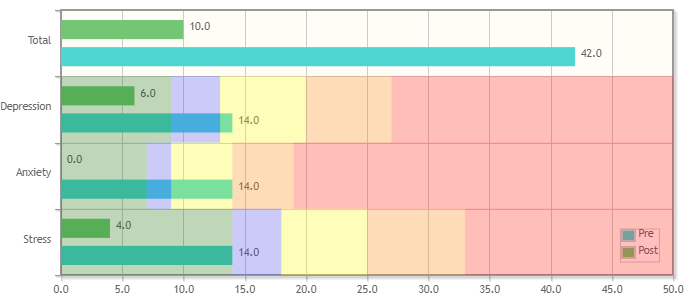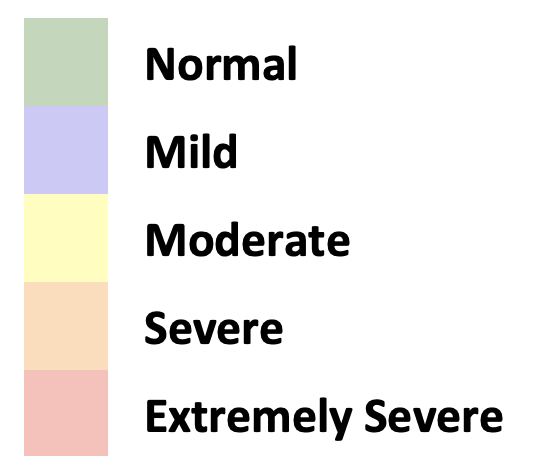ASRA: Effective outcome tracking
Increasingly, Local Authorities, VCS providers, and funding bodies need to demonstrate the impact of the family support interventions they deliver, but with ever growing demand on Early Help services, time spent laboriously inputting or chasing missing outcome data puts extra strain on services – so effective, efficient systems that help services demonstrate outcomes are vital.
Engagement and outcome data is required by various bodies including the Department of Levelling Up Communities and Housing (DLUCH) Supporting Families Programme and Ofsted, and is needed for ongoing internal quality monitoring. Having the right tools in place makes it easy for practitioners to track progress and share information with individual parents/carers, and create clear and concise reports of broader trends and overall community impact.
Traditionally, a parent/carer seeing a support service is given questionnaires to fill out on paper, requiring manual scoring at a later date. Following an intervention, questionnaires would be posted out, filled in, and then returned. Comparing pre- and post- intervention data is the only way to accurately track progress, but often it’s quite difficult to get post-intervention data. However, Triple P’s Automated Scoring and Reporting Application, or ASRA, is FREE to all Triple P trained practitioners as part of Triple P’s Provider Network. This online platform allows organisations to easily send clinical questionnaires to parents, pre- and post-intervention electronically.
At a recent Triple P webinar, Making Data Collection & Reporting Easy, Joshua Sanders from Gloucestershire County Council and Parina Ahmed from Leicestershire County Council discussed how they collect important data as part of delivering Triple P interventions. They highlighted how ASRA helps families literally ‘see’ their progress, via graphs of their questionnaire results, and what a powerful impact this has. Joshua also talked about how he uses ASRA to report on overall programme effectiveness to senior leaders.
ASRA includes evaluation tools that are commonly used in clinical psychology and family support settings, including the DASS 21 (Depression, Anxiety & Stress Scale), the SDQ (Strengths & Difficulties Questionnaire), the Parenting Scale and others that have been specifically developed by Triple P such as the CAPES (Child Adjustment and Parenting Efficacy Scale). ASRA’s features allow users to:
- Analyse individual cases, to determine how effective Triple P has been for a family
- Analyse outcomes by practitioner, district, Triple P programme or client demographics
- Compare outcomes between programmes or interventions, for resource allocation purposes
- Report on overall programme effectiveness - reports can also be tailored to show specific data ranges (for example, just families with children of a certain age group)
Parina explained how ASRA has revolutionised how her team gathers post-intervention data. Previously, parents often struggled to submit post-intervention data, for various reasons. However, now it’s not only easier to email out questionnaires; it’s also simple to identify who hasn’t yet submitted their responses, and ask a practitioner to follow up directly.
Gloucestershire County Council found that by using ASRA’s email function and sending outcome measures to parents from practitioner’s email addresses, the team increased collection of both pre- and post- measures from around 10% to 90%. (They also added time into the final session of the programme for parents to complete the post-course questionnaires on ASRA, to boost response numbers further.)
Joshua also spoke about the benefits of reporting progress to senior management, Ofsted and the Payment by Results programme. Using graphs that ASRA automatically generates, he is able to give context and a broader view of the impact of Triple P programmes. To add visual data representation to add to his reports, he no longer needs to spend time crunching data and creating graphs – he simply downloads a graph.
The example below shows ASRA’s graphical output of pre- and post- questionnaire results for a parent completing the Depression Anxiety and Stress Scale (DASS-21). DASS-21 is a screening measure for symptoms of depression, anxiety and stress in adults.


Note: There is no clinical cut-off associated with the total score for the DASS-21, and only scores that fall within the moderate range or above are considered to be clinical for the three sub-scales.
The new National Supporting Families Outcome Framework makes clearer than ever the benefits delivered by evidence-based parenting and family relationships programmes, including Triple P interventions, and how completion of these can be used as evidence to draw down funding. However, as the demand for Early Help services continues to rise and targets for Supporting Families increase, teams across the country will need to demonstrate their impact, while also working more efficiently. Even though these may appear to be competing demands, ASRA offers an effective way to meet them both, through streamlined data collection and reporting.
Triple P Implementation Consultants can give advice and information on Triple P programmes and how ASRA can streamline your team’s approach.